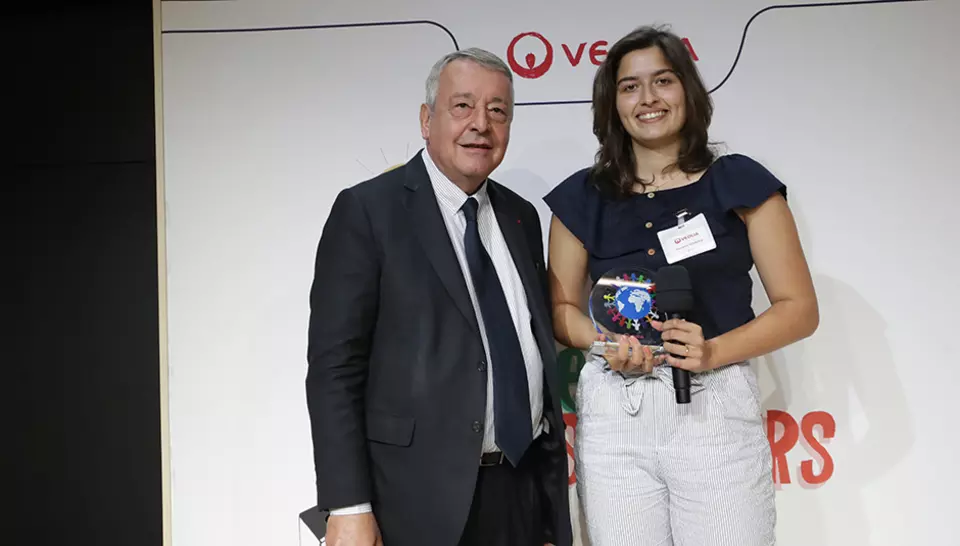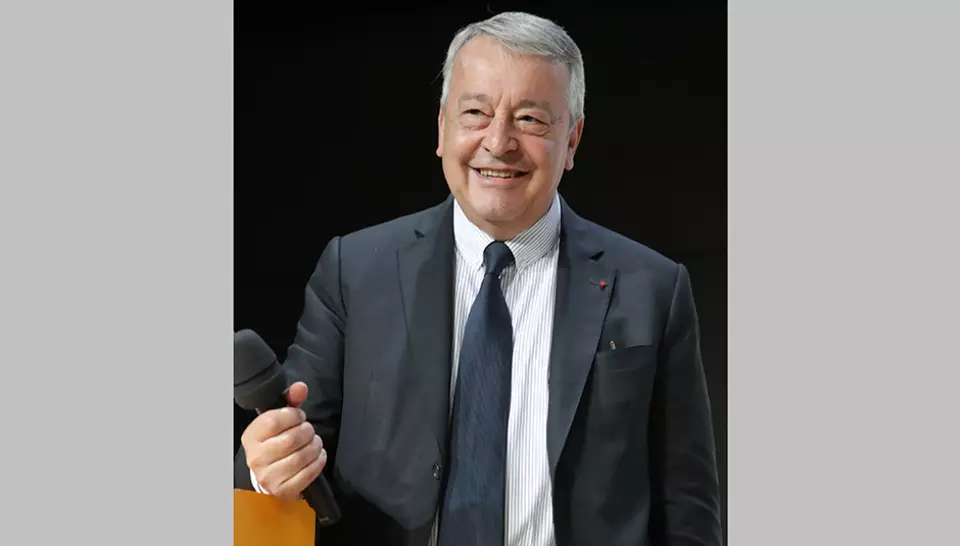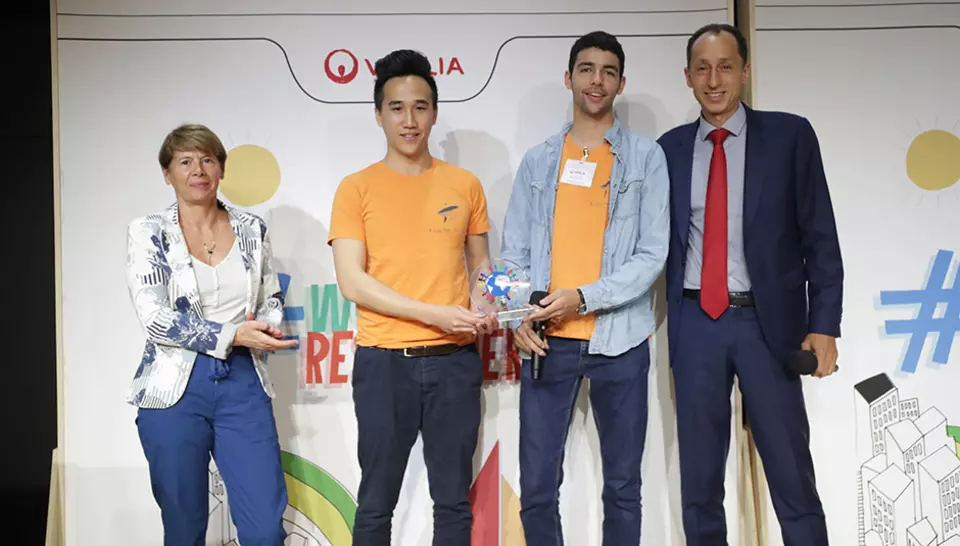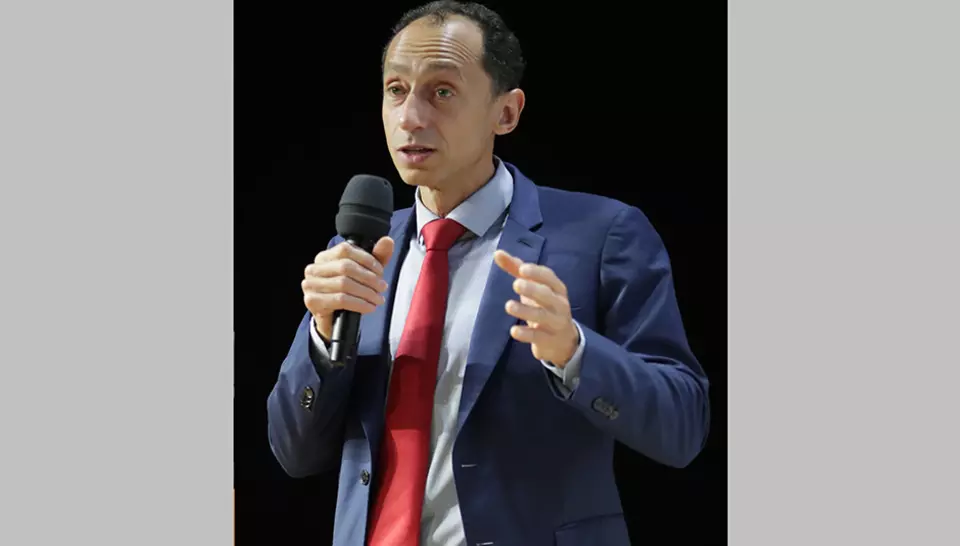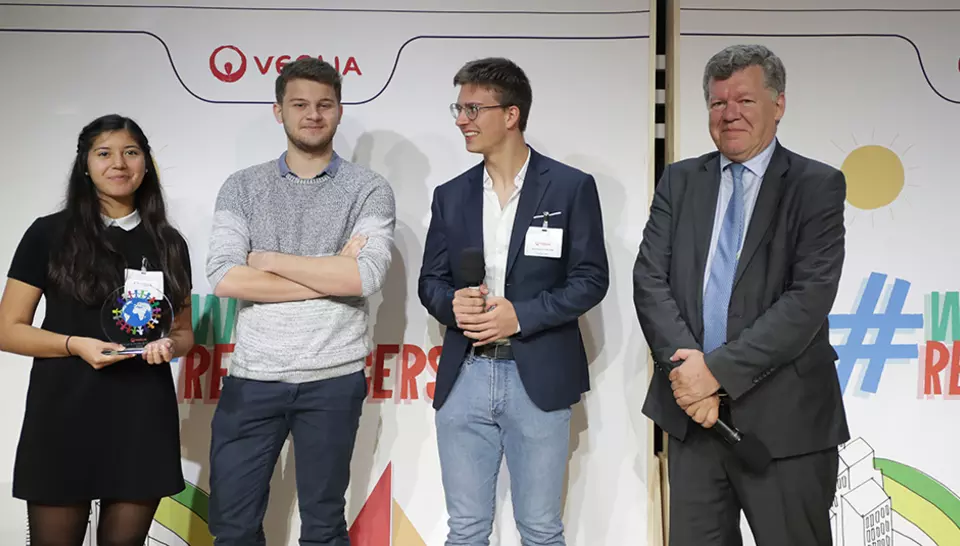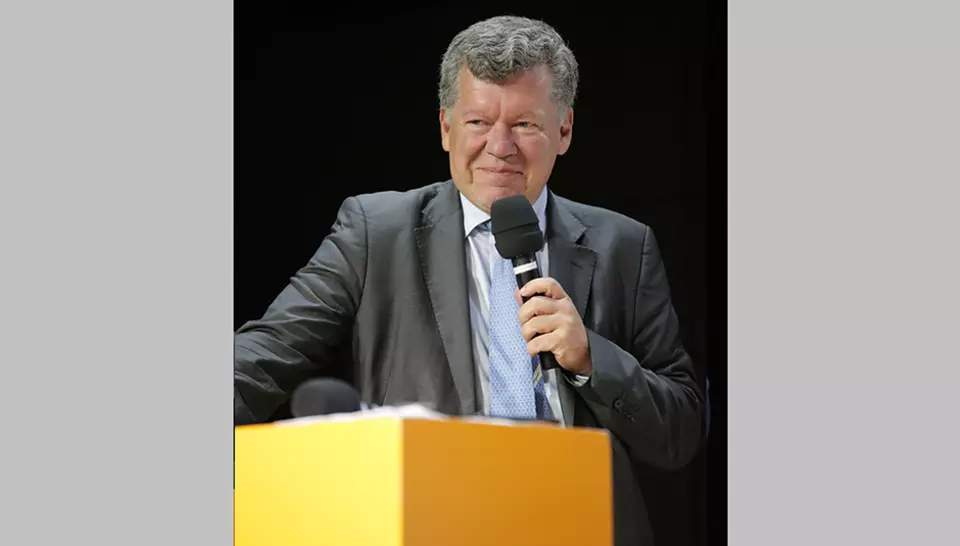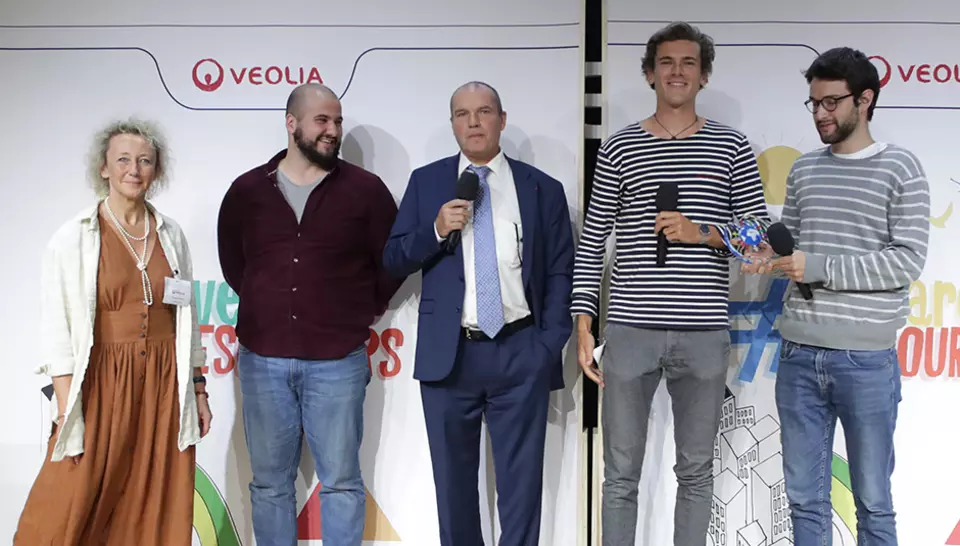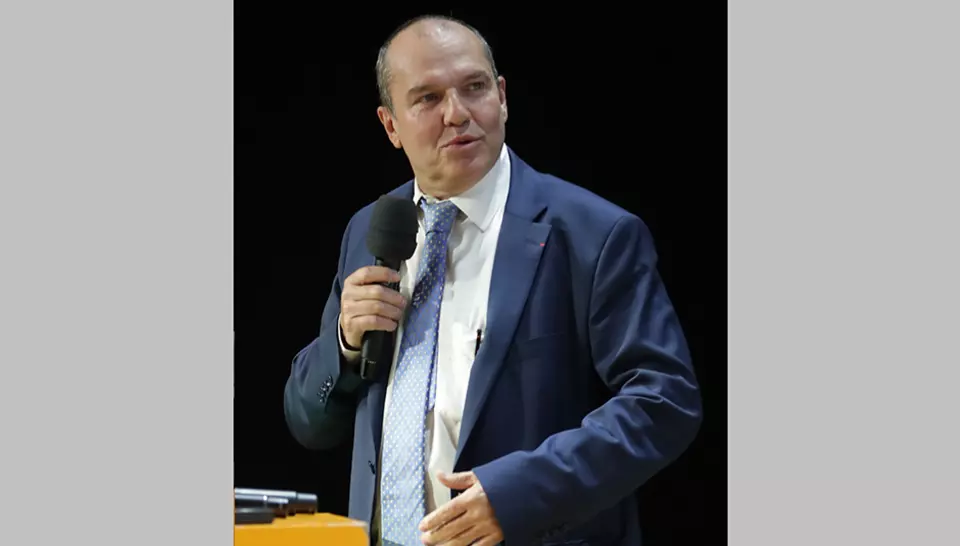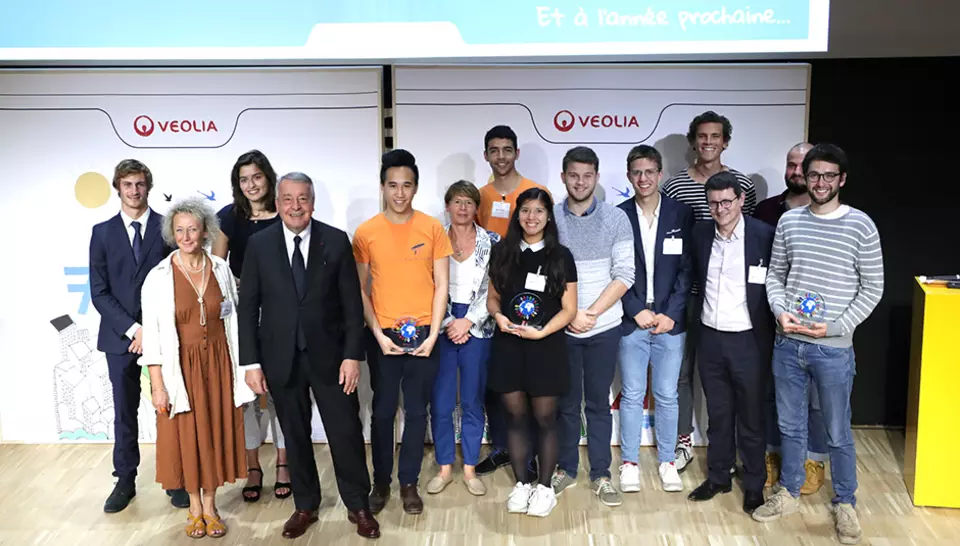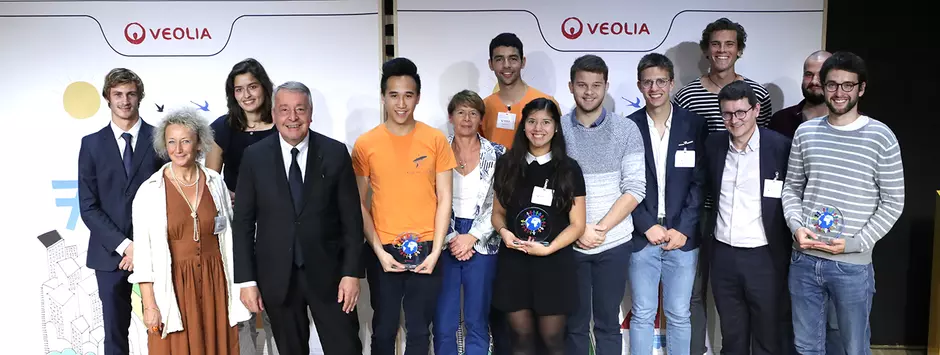
To encourage initiatives by student associations, in 2008 Veolia and its Foundation launched the Student Solidarity Awards, which communicates the Group's societal approach to students in Grandes Écoles and universities. Yesterday at the Group's headquarters in Aubervilliers, Veolia's Chairman and CEO, Antoine Frérot, presented prizes to the 4 winners: selected from 128 candidates from all over the world (one third from abroad: Bulgaria, Canada, Senegal, Gabon, Cameroon, Benin, Hungary, Germany), they receive a financial endowment to help them carry out their project.
The 11 best short-listed projects were presented to the jury made up of representatives of the Veolia Foundation (Thierry Vandevelde and Anne-Sophie Filhoulaud), the management of the Veolia Group's Human Resources (Nicolas Lecuy and Nicole Tress), NGOs (Guillaume Aubourg and Colette Génévaux from the Solidarité Eau association) and higher education (Alix Chabrol for AgroParisTech and Agnès Brandi for Grenoble Ecole de Management).
Following the presentations, 3 winners were named by the jury and a 4th received the Public’s Award.
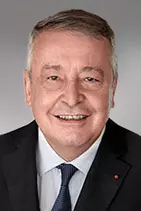
The 4 winners in 2019
-
1st Prize: “Les Recyclettes” from the student association RECUP’ at the Université de Bordeaux:
Récup' recovers organic waste in urban areas (40% of our bins) using Bokashi composters (organic matter concentrate containing a large amount of nutrients) to transform waste into compost at home. In exchange for membership of the association, it provides a free Bokashi composter to people who agree to give them their compost once a month. It is collected using three-wheeled bicycles and delivered to market gardeners who use it to grow fruit and vegetables that are then sold to members. The city of Bordeaux creates a loop between consumers and producers. 4,000 euros has been awarded to the association to develop an application.
-
2nd Prize: REV Action from the association RECUP’Eau Vietnam at Centrale Nantes:
The REV-machine project will enable the Liên Son 2 villagers in southern Vietnam to eventually create a complete plastic recycling loop: from waste treatment (grinding) to producing molded objects and thin cables. The aim of the project is to manufacture a grinder, an extrusion machine, an injection press and a compressor. The project will both raise villagers' awareness of the challenges of plastic pollution in the environment and provide them with a solution for treating the waste that will also revitalize the local economy. Recovering plastic will become a village recycling activity in a circular local economy. The association received an award of 3,000 euros to build dry toilets and finalize the REV-Machine.
-
3rd Prize: Envol Vert from the association Perunidad at CentraleSupélec:
In the rural provinces of Chanchamayo and Satipo in Peru, the Envol Vert project aims to both restore the balance of damaged agricultural areas and diversify and achieve a significant increase in farmers' incomes in the coffee sector by means of sustainable forestry. This project raises the awareness of its beneficiaries to eco-friendly collective approaches.
The international solidarity association Perunidad was founded 8 years ago at the Ecole CentraleSupélec to help the more than 500 children in 3 villages in Peru near Trujillo and Huanchaco and fight deforestation in the Amazon rainforest. It received an award of 3000 euros to purchase seeds and set up nurseries.
-
The Public’s Award rewards the association SEA Plastics at AgroParisTech:
SEA Plastics 2019 contributes to scientific research in the Mediterranean through the development of new sampling protocols to improve knowledge of micro-plastic and its adverse effects in the marine environment. Since 2016, students from the SEA Plastics Association have been using their gap year: they organize a 3 to 6 month sailing expedition to carry out sampling campaigns or other scientific missions. Supported by scientific and institutional actors - CNES, Marbec, Mercator Ocean, France’s Ministry of Ecological and Solidarity transition, Albert II Foundation of Monaco - SEA Plastics aims to carry out an awareness and research project focusing on microplastic pollution through an expedition in Mediterranean Sea. The award of 5,000 euros will be invested in the vessel, in particular for the navigation system and consumables.
The projects relating to solidarity, social and employment support and environmental protection, areas covered by the Veolia Foundation, are chosen on the basis of 8 criteria:
- The quality of the application: clarity, proposed methodology, overall intelligibility
- Professionalism: understanding of the local context, involvement of the public authorities concerned
- Project feasibility: technical and financial, partners and institutional set up
- The project impact: economic, social and / or environmental
- The synergies sought by the association: co-financing and external support
- The nature of the aid being requested
- Sustainability: involvement of local resources to sustain the project.
- An innovative approach.
An award €15,000 is divided between the 4 winners.


